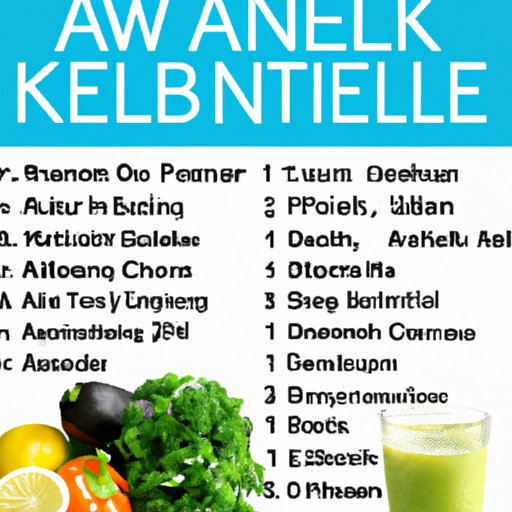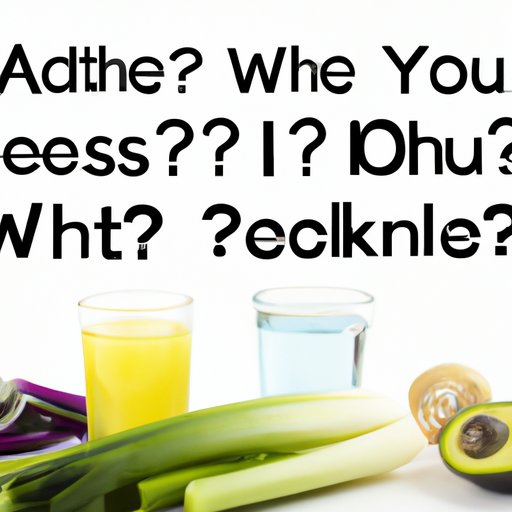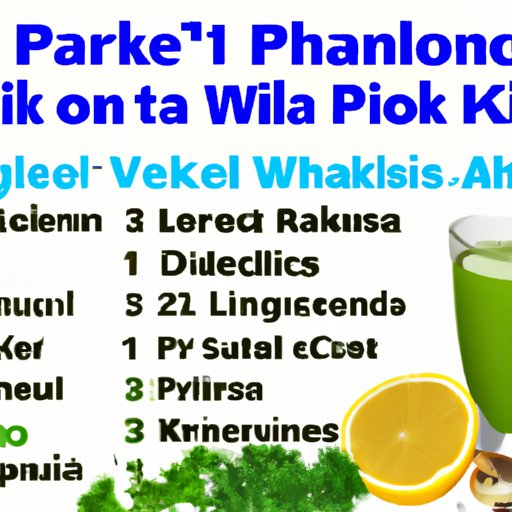Introduction
The alkaline diet is a popular eating plan based on the idea that certain foods can affect your body’s pH balance. Proponents of the diet claim that it can help improve health, reduce inflammation, and even prevent or reverse some diseases. But is there any truth to these claims? In this article, we’ll explore what an alkaline diet is, its potential benefits and risks, and provide 10 easy recipes for beginners.
A Beginner’s Guide to Eating an Alkaline Diet
An alkaline diet is an eating plan that emphasizes eating alkaline-forming foods and avoiding acid-forming foods. The theory is that by eating more alkaline-forming foods, your body’s pH balance will become more alkaline, which can help promote health and reduce disease risk. It is important to note, however, that no scientific evidence supports the idea that eating an alkaline diet can change your body’s pH level.
If you’re interested in trying an alkaline diet, it’s important to understand how to transition to this way of eating. Start by limiting processed foods, refined carbohydrates, and sugar, which are all acid-forming foods. Instead, focus on eating whole, plant-based foods such as fruits, vegetables, nuts, seeds, legumes, and healthy oils. You should also avoid red meat, dairy products, and alcohol, which are all considered acid-forming.
Understanding the Science Behind an Alkaline Diet
It’s important to understand the science behind an alkaline diet before you start eating this way. The pH scale measures how acidic or alkaline something is, with 0 being the most acidic and 14 being the most alkaline. Most experts agree that our bodies are slightly alkaline, with a normal pH range of 7.35 to 7.45. This means that our bodies are slightly more alkaline than acidic.
When it comes to food, some are considered acidic and others are considered alkaline. Acidic foods include red meat, dairy products, refined grains, and processed foods. Alkaline foods include fruits, vegetables, nuts, seeds, legumes, and healthy oils. Eating a diet that emphasizes alkaline-forming foods can help reduce acidity in the body, which may help reduce inflammation and improve overall health.

10 Easy Recipes for an Alkaline Diet
Eating an alkaline diet doesn’t have to be complicated. Here are 10 easy recipes for breakfast, lunch, and dinner that are packed with alkaline-forming ingredients:
Breakfast
• Overnight oats with blueberries and almonds
• Avocado toast with tomatoes and hemp seeds
• Green smoothie with spinach, banana, and almond milk
• Chia seed pudding with coconut milk and honey
• Quinoa porridge with cinnamon and apples
Lunch
• Lentil soup with kale and carrots
• Chickpea salad with cucumber and bell peppers
• Roasted vegetable wrap with hummus
• Raw vegetable platter with tahini dressing
• Quinoa bowl with roasted vegetables and guacamole
Dinner
• Baked salmon with asparagus and sweet potato
• Stuffed bell peppers with quinoa and black beans
• Veggie stir fry with brown rice
• Portobello mushroom burgers with avocado
• Zucchini noodles with pesto

Common Questions About an Alkaline Diet
Many people have questions about an alkaline diet. Here are some of the most common questions and their answers:
How Can I Stick to an Alkaline Diet?
Sticking to an alkaline diet can be challenging, but there are a few simple tips that can help. First, plan ahead and make sure you have plenty of alkaline-forming foods on hand. Second, try to limit processed foods and refined carbohydrates, which can be difficult to avoid if you don’t plan ahead. Third, focus on adding more alkaline-forming foods to your diet rather than trying to eliminate all acid-forming foods.
Are There Any Supplements I Should Take?
While supplements are not necessary for an alkaline diet, some proponents suggest taking mineral supplements such as calcium and magnesium, which can help balance the body’s pH levels. However, it is important to talk to your doctor before taking any supplements.
Conclusion
The alkaline diet is an eating plan based on the idea that certain foods can affect your body’s pH balance. While there is no scientific evidence to support this idea, some research suggests that eating an alkaline diet may offer health benefits, such as reduced inflammation and improved digestion. If you’re interested in trying an alkaline diet, focus on eating more whole, plant-based foods and limiting processed foods and refined carbohydrates. Additionally, make sure to plan ahead and have plenty of alkaline-forming foods on hand.
(Note: Is this article not meeting your expectations? Do you have knowledge or insights to share? Unlock new opportunities and expand your reach by joining our authors team. Click Registration to join us and share your expertise with our readers.)
